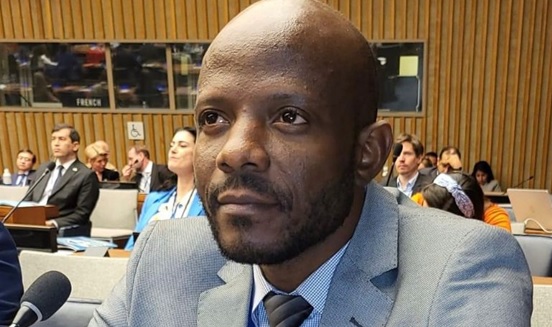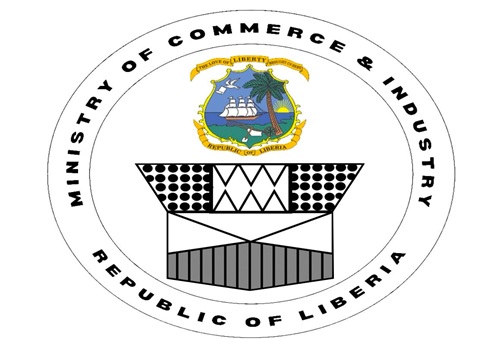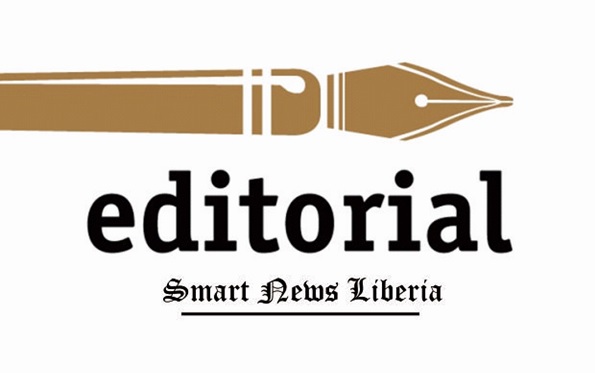MONROVIA – In a surprising turn of events, Amos F. Gborie, previously suspended for his involvement in a COVID-19 certificate scandal, has been appointed as the Acting Director General of the National Public Health Institute of Liberia (NPHIL). This controversial appointment raises questions about the integrity and transparency of Liberia’s public health administration.
Gborie and two other officials were suspended in 2020 by then NPHIL Director General Dr. Masoka Fallah for their roles in issuing a fraudulent COVID-19 certificate to Skeeter T. Wilson, a Liberian-born American. The scandal erupted when Wilson, attempting to return to the United States, was intercepted at Roberts International Airport (RIA) by Liberian Immigration Service officials. They discovered that her COVID-19 certificate, declaring her negative, was forged.
At the time, Gborie served as the Deputy Director for the Division of Environmental and Occupational Health at NPHIL. Alongside Gborie, Fahn Taweh, Deputy Director of the National Public Health and Reference Laboratory, and Jonathan G. Ender, Chief of Office Staff to Dr. Fallah, were implicated. The New Dawn newspaper, in a 2020 article titled “Test scandal busted at NPHIL-three officials suspended,” detailed how the officials reportedly accepted $3,000 from Wilson for the falsified certificate.
Wilson had tested positive for COVID-19 and was informed of her status under the Incident Management System (IMS) protocol. However, within a week, she received a certificate signed with a forged signature of Dr. Fallah, declaring her negative. Dr. Fallah later claimed that his signature was electronically affixed by Ender without his knowledge. An internal investigation revealed that Gborie had altered Wilson’s positive result to negative and facilitated the issuance of the fraudulent certificate.
The scandal threatened to undermine Liberia’s efforts to contain COVID-19, with Dr. Fallah emphasizing the danger of allowing confirmed positive cases to be falsely declared negative. He stressed that only verified negative results should be issued travel certificates, warning that such breaches could severely impede containment efforts. This incident cast a long shadow over NPHIL’s credibility, shaking public confidence in its ability to manage the health crisis effectively.
Despite his central role in the scandal, Gborie has now assumed the position of Acting Director General of NPHIL. This appointment has sparked outrage and bewilderment among many who question the decision of the Boakai administration, which was elected on promises of transparency and accountability. Critics argue that appointing someone with a tarnished record undermines the credibility of Liberia’s public health leadership.
Further complicating matters, Gborie has reportedly applied for the permanent Director General role. This move has intensified scrutiny and criticism from various quarters, with many calling for a thorough review of his past conduct before any permanent appointment is made. The silence of several Board Members regarding the decision to appoint Gborie as Acting Director only fuels the controversy.
The Boakai administration’s decision to elevate Gborie to such a significant position without addressing the past allegations against him raises serious ethical and procedural questions. Public health experts and civil society organizations are demanding transparency in the selection process and accountability for past actions. They argue that maintaining public trust in health institutions is paramount, especially in the wake of a global pandemic.
Gborie’s controversial appointment also highlights the broader issues of governance and integrity within Liberia’s public sector. Many are calling for stronger mechanisms to vet candidates for high-level positions and ensure that those with questionable histories are not placed in positions of power. This case serves as a litmus test for the administration’s commitment to its professed values of honesty and transparency.
In response to the backlash, some government officials have hinted at the possibility of a re-evaluation of Gborie’s appointment. However, concrete actions and official statements are yet to be made. The public and various stakeholders are watching closely, awaiting further developments and hoping for a resolution that upholds the integrity of Liberia’s public health system.
As Liberia faces with this contentious appointment, the need for thorough investigations and adherence to principles of integrity and transparency becomes increasingly apparent. The Boakai administration must address these concerns to restore public trust in the nation’s health institutions. The story continues to unfold as the public awaits responses from key stakeholders in the health sector.







